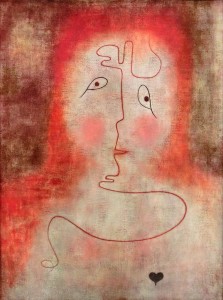Clinical Services

 Psychoanalysis seeks to liberate the individual from personal and relational pain by exploring the forces that unconsciously determine many instances of such pain.
Psychoanalysis seeks to liberate the individual from personal and relational pain by exploring the forces that unconsciously determine many instances of such pain.
This form of therapy differs from others in a number of significant ways: meetings are more frequent (2, 3 even 5 times per week), the subject matter more elusive (childhood history, dreams and fantasies), and the relationship with the therapist both more intense and more often the topic of mutual exploration. Psychotropic medicine may or may not be employed, but generally plays a minor role, because the goal of analysis is not so much to suppress symptoms as to understand them, and because, as their meanings become clear, symptoms tend spontaneously to resolve.
Psychoanalysis requires significant commitments of time, money and emotional engagement, but leads at length to a new sense of freedom, responsibility, depth and meaningfulness in life.To inquire about treatment, call or email.
 Dynamic psychotherapy makes use of many of the theories and clinical methods of psychoanalysis, while adapting them to the needs of a wider variety of patients and clinical situations than “pure analysis” originally evolved to treat. Character problems, for example, often deeper-rooted in their origins and more pervasive in their effects than the more isolated symptoms of neurotic patients, respond more readily to this more active, face-to-face approach.
Dynamic psychotherapy makes use of many of the theories and clinical methods of psychoanalysis, while adapting them to the needs of a wider variety of patients and clinical situations than “pure analysis” originally evolved to treat. Character problems, for example, often deeper-rooted in their origins and more pervasive in their effects than the more isolated symptoms of neurotic patients, respond more readily to this more active, face-to-face approach.
Sessions occur less frequently– once or twice per week, typically– and tend to address the patient’s problems more literally, as in “How do I keep getting into this same old trouble ?” in contrast to the usual psychoanalytic inquiry, “What unconscious memories are making me feel this way?” Patients with psychiatric disorders (involving mood, thought, perception and arousal, for example) often profit from this form of psychotherapy in addition to the more standard drug therapies, because their disorders occur, after all, in the contexts of lives at least as complex and fully human as those of neurotics.
Dynamic psychotherapy can help with the problems of families and couples, and with those of patients who lack the resources of time and money that the more involved psychoanalytic treatments often require.
To inquire about appointments or consultations, call or email Dr. Mann.
 During the course of psychoanalysis and psychodynamic psychotherapy, questions often arise about the use of psychotropic medication. Likewise, many patients with ongoing, primarily psychiatric, difficulties may find during the course of intensive psychotherapy that their symptoms change in ways that require a reevaluation of the pharmacologic dimension of their treatment.
During the course of psychoanalysis and psychodynamic psychotherapy, questions often arise about the use of psychotropic medication. Likewise, many patients with ongoing, primarily psychiatric, difficulties may find during the course of intensive psychotherapy that their symptoms change in ways that require a reevaluation of the pharmacologic dimension of their treatment.
In such cases, standard psychopharmacologic evaluation can result in any number of medical misadventures, including over- and under-prescription of drugs, misapplication of anxiolytic, antidepressant, antipsychotic and other medications, and the “collusion of experts” in overlooking such important and meaningful matters as occult substance abuse or unrecognized transference and countertransference enactments.
Over the past twenty years I have consulted and prescribed successfully for many patients such as these in a variety of institutional and private settings, as well as prescribing for my own patients and for those of other analytic practitioners. In response to an increasing volume of requests, I have recently opened a segment of my private practice specifically for patients and therapists in need of this specialized psychopharmacologic consultation.
Under the aegis of the “Analytic Pharmacology Consultation Service,” I am available to see patients new to your practices, in need of initial psychopharmacologic evaluations, as well as established patients for whom questions concerning new or ongoing psychoactive medications have arisen. Where necessary, I will make recommendations to primary care physicians and other prescribers. Where indicated, I personally will take responsibility for prescribing, or will refer the patient to another appropriate source within a local network of qualified prescribers.
Initial consultations will take place in my office at 89 Magazine Street, Cambridge. Sliding scales may apply in qualified cases, and insured patients may expect reimbursement according to the terms of their third-party contracts, but all fees will be billed directly to patients. For appointments, please have patients call or email Dr. Mann directly.
